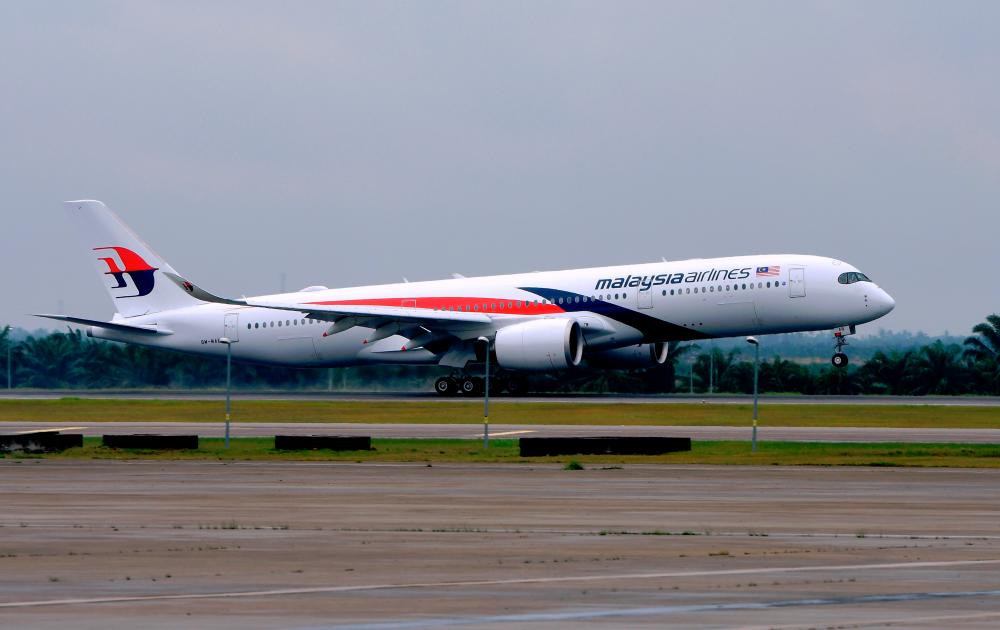PETALING JAYA: Malaysia Airlines Bhd’s (MAB) saw its passenger yield come under pressure in the third quarter of 2018, falling 4.86% to 21.5 sen from 22.6 sen in the same quarter last year, partially due to the inability to deploy planned peak upgrading of aircraft to a widebody.
The airline said in a statement today that it was unable to deploy the planned peak upgrading of aircraft due to crew shortages, which also in turn impacted revenue.
Revenue per available seat kilometre (RASK) rose 1.43% to 21.2 sen from 20.9 sen a year ago driven by higher cargo revenue, which was up 29% year-on-year.
MAB carried some 3.47 million passengers in the quarter under review against the 3.4 million passengers flown in the third quarter of last year.
On-time performance (OTP) also increased during the quarter, up by 8% year-on-year to 74.9%, as a result of improved operational efficiencies in engineering and ground handling.
The national carrier said it experienced a challenging third quarter with stiff competition, rising fuel prices and adverse foreign exchange movements which was further exacerbated by crew shortages, especially in July and August.
The airline is confident that its crew shortage issue can be stabilised by early 2019, as it has since activated an extensive recruitment exercise, supported by an aggressive cadet enlistment and training programme to build a strong crew pipeline.
Passenger load factor during the quarter increased to 80.5% from 77.5% in the third quarter of 2017 while recovery in international business continued during the quarter with a load factor of 81.7% in 2018 versus 78.4% in 2017.
As for fleet developments, the airline saw the addition of its sixth A330-200 to its fleet of 21 such aircraft, which is deployed on higher density regional routes across Asia Pacific.
Meanwhile, its B737-800s continued to provide domestic and regional connectivity. The airline is also preparing for delivery of 10 B737 MAX8 in 2020.
Group CEO Izham Ismail said the third quarter was challenging with volatile fuel prices, unfavourable foreign exchange movements and over capacity in key markets, compounded by pilot shortage.
“Nevertheless, in line with our emphasis on customer experience, I believe our efforts in that area continue to show positive traction as evidenced by the improvements in our CSI ( Customer Satisfaction Index) and NPS (Net Promoter Score) ratings. We are maintaining a strong focus on cost management and will continue to invest in aspects of the customer experience that deliver a competitive edge,” he said.
“Our pioneering digital initiatives, including the recently launched WhatsApp Business solution, exemplify this. We have seen good quarterly traction in the year and we are expecting to finish 2018 by reducing the losses of the previous year,” he added.
Izham noted that while 2019 looks similarly challenging, MAB is committed to improving performance and reducing costs while managing external factors beyond its control.













